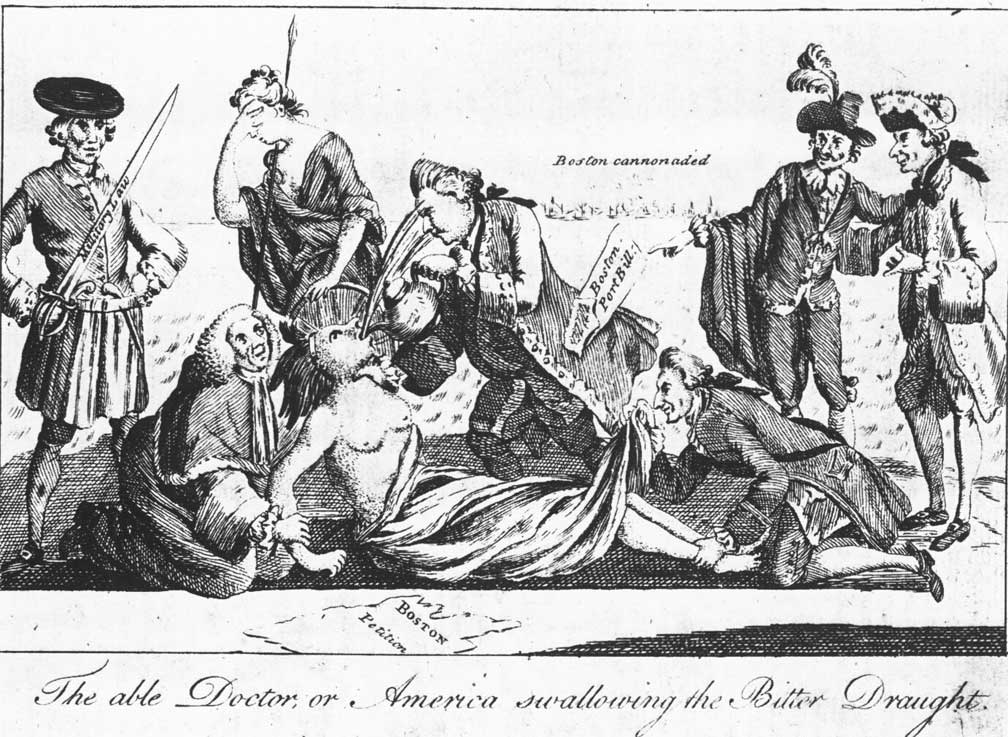British impose the Coercive acts

The British parliament gave its speedy assent to a series of acts that became known as the "Coercive Acts"; or in the colonies as the "Intolerable Acts". This was a reaction to the Boston Tea Party. These acts included the closing of the port of Boston, until such time as the East India tea company received compensation for the tea dumped into the harbor. The Royal governor took control over the Massachusetts government and would appoint all officials. Sheriffs would become royal appointees, as would juries. In addition, the British took the right to quarter soldiers anywhere in the colonies.
.
The British were shocked and outraged by the Boston Tea Party. It was clear the British were going to respond, the question was how. Some in parliament, led by William Pitt and Edmund Burke, urged caution. Pitt and Burke warned the parliament they were going down the wrong path with the colonists. However, their words of warning were ignored. Parliament deiced to punish those in Boston, on a number of measures. The first was the Boston Port Act. That act closed the port of Boston until the East India was compensated for their tea.
The Boston Port Act shocked the people of Boston. The Boston Committee of Correspondence immediately called for a meeting in Faneuil Hall. There, letters were sent out to other colonies asking for support. The letter stated: “the single question then, is whether you consider Boston as now suffering a common cause, and sensibly feel and resent the injury and affront."
Boston asked other colonies to stop trading with England as a response to the British actions. The colonies were sympathetic to Boston's plight, but responses were mixed.
The British were not willing to stop with the closing of Boston Harbor. They then enacted the Massachusetts Government Act. This act suspended the popular election of councilors. The act called to replaced the councilors with directly appointed officials, as well as directly appointed judges. This new act created even more resentment in the colony than the Boston Port Act. Not only was Boston upset, the entire Massachusetts colony was now up in arms. British officials could no longer operate in areas where the British army was not in place. Opponents to these acts barred the judges appointed by the crown from hearing cases and the newly appointed crown representatives were convinced not to take office.
The British made one final mistake. The British passed the Quebec Act. This act extended the Quebec province along the western borders of the colonies, thus sealing them off from Western expansion. The act further ensured those colonies would be open to Catholic settlers. This act further alarmed the Protestant Puritans of the New England.
The British hoped their acts would force Boston and the surrounding areas into submission. The British acts had the opposite effect. Implementing these acts was one of the last of a long string of miscalculations made by the British government in the wake of the impending American independence.
 >
>